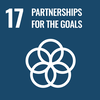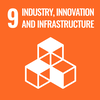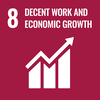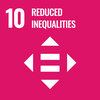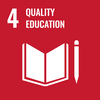The Most Important in Brief
World Robot Olympiad (WRO) was established in 2004 in Southeast Asia. It is now present in over 85 countries across the globe, many of which are low or lower-middle income. Before the pandemic, each year we had around 100,000 young people in 29,000 teams taking part, supported by tens of thousands of volunteers. At the core of our programmes are our robotics competitions, where students undertake themed challenges or demonstrate solutions to real-world problems inspired by the SDGs, using robots that they have built and programmed themselves using a range of robotics and coding tools. WRO builds academic knowledge, practical experience and employability skills. Each competition season includes international events which are celebratory, multi-cultural events where youth gain insights from, and make friends with peers from around the world. World Robot Olympiad Association is a non-profit that provides oversight for the work done around the world by our National Organizers, who have the non-profit delivery franchise in each country, and their volunteers. WRO believe that hands-on experience, exploration, and play are the best teachers of all, and our vision is to pursue a future where every curious young person, regardless of their background, is inspired and equipped to achieve their full potential through science, engineering and technology. This vision is underpinned by our values, which are diversity, teamwork, passion, innovation and empowerment. WRO is seeking financial and in-kind support to sustain and grow the core programming on a global and regional basis and keep participation costs to a minimum; to support our organisers and participants to overcome barriers to participation; and, to deliver projects that will improve impact, accessibility and inclusivity, bridge the gap between education and employment and bring STEM opportunities where there are none.
-
Purpose
WRO was set up with this mission: Provide a platform for children all over the world to celebrate science, technology, engineering and math; Prepare participants for the 21st century challenges by nurture creativity, build problem solving, teamwork and communication skills through robotics activities; and, Provide opportunities for children to have cultural interaction and understanding with their peers from around the world
-
The Most Important in Brief
World Robot Olympiad (WRO) was established in 2004 in Southeast Asia. It is now present in over 85 countries across the globe, many of which are low or lower-middle income. Before the pandemic, each year we had around 100,000 young people in 29,000 teams taking part, supported by tens of thousands of volunteers. At the core of our programmes are our robotics competitions, where students undertake themed challenges or demonstrate solutions to real-world problems inspired by the SDGs, using robots that they have built and programmed themselves using a range of robotics and coding tools. WRO builds academic knowledge, practical experience and employability skills. Each competition season includes international events which are celebratory, multi-cultural events where youth gain insights from, and make friends with peers from around the world. World Robot Olympiad Association is a non-profit that provides oversight for the work done around the world by our National Organizers, who have the non-profit delivery franchise in each country, and their volunteers. WRO believe that hands-on experience, exploration, and play are the best teachers of all, and our vision is to pursue a future where every curious young person, regardless of their background, is inspired and equipped to achieve their full potential through science, engineering and technology. This vision is underpinned by our values, which are diversity, teamwork, passion, innovation and empowerment. WRO is seeking financial and in-kind support to sustain and grow the core programming on a global and regional basis and keep participation costs to a minimum; to support our organisers and participants to overcome barriers to participation; and, to deliver projects that will improve impact, accessibility and inclusivity, bridge the gap between education and employment and bring STEM opportunities where there are none.
-
Goals
Rebuilding WRO participation to pre-pandemic levels by 2024 Growing and retaining the number of countries represented Growing the number of young people taking part from 2025 onward Seeing tangible increases in: under-represented groups taking part, especially girls; quality of entries; team retention from season to season Growth in Africa, Northern Europe and the Americas Development of programmes tailored for young children and starters Development of programmes to develop skills for employability and careers awareness
-
Principles
WRO partners with well-placed organisations with educational expertise in each of the countries in which it operates on a non-profit franchise model. They share the vision and values of the Association and will be committed to growing WRO's programmes in the territory they have responsibility for. In many cases these organisations have links to government and large supporting organisations. These franchises raise their own sponsorship and have locally relevant income generation models. These National Organisers will contribute new ideas and help with testing and development of new concepts for the benefit of the global WRO community.
-
Measures
Tailored support for National Organisers New projects created with and tested by National Organisers Drawing on expert advice to adapt existing programming to appeal to under-represented groups Sourcing donations to directly support low or lower-middle income countries
-
Financing
WRO is dependent on, and can only deliver new development projects, through sponsorship, donations and grants. We require a small annual membership fee from each participating country and a small participation fee per team, but these sums are capped and new and poorer countries often receive a substantial discount. These fees are deliberately kept small to avoid creating barriers to taking part
Area of Impact
WRO was set up with this mission: Provide a platform for children all over the world to celebrate science, technology, engineering and math; Prepare participants for the 21st century challenges by nurture creativity, build problem solving, teamwork and communication skills through robotics activities; and, Provide opportunities for children to have cultural interaction and understanding with their peers from around the world
World Robot Olympiad (WRO) was established in 2004 in Southeast Asia. It is now present in over 85 countries across the globe, many of which are low or lower-middle income. Before the pandemic, each year we had around 100,000 young people in 29,000 teams taking part, supported by tens of thousands of volunteers. At the core of our programmes are our robotics competitions, where students undertake themed challenges or demonstrate solutions to real-world problems inspired by the SDGs, using robots that they have built and programmed themselves using a range of robotics and coding tools. WRO builds academic knowledge, practical experience and employability skills. Each competition season includes international events which are celebratory, multi-cultural events where youth gain insights from, and make friends with peers from around the world. World Robot Olympiad Association is a non-profit that provides oversight for the work done around the world by our National Organizers, who have the non-profit delivery franchise in each country, and their volunteers. WRO believe that hands-on experience, exploration, and play are the best teachers of all, and our vision is to pursue a future where every curious young person, regardless of their background, is inspired and equipped to achieve their full potential through science, engineering and technology. This vision is underpinned by our values, which are diversity, teamwork, passion, innovation and empowerment. WRO is seeking financial and in-kind support to sustain and grow the core programming on a global and regional basis and keep participation costs to a minimum; to support our organisers and participants to overcome barriers to participation; and, to deliver projects that will improve impact, accessibility and inclusivity, bridge the gap between education and employment and bring STEM opportunities where there are none.
- June 29, 2010
-
Yasuhide Kobayashi AddedBoard member
-
Clarence Sirisena AddedBoard member
-
Lars Vahl AddedChair
-
Claus Ditlev Christensen AddedSecretary General
-
Eugene Zhang AddedBoard member
-
Johnson Jan AddedBoard member
-
Jonathan Hung AddedBoard member
Last updated on December 20, 2023
